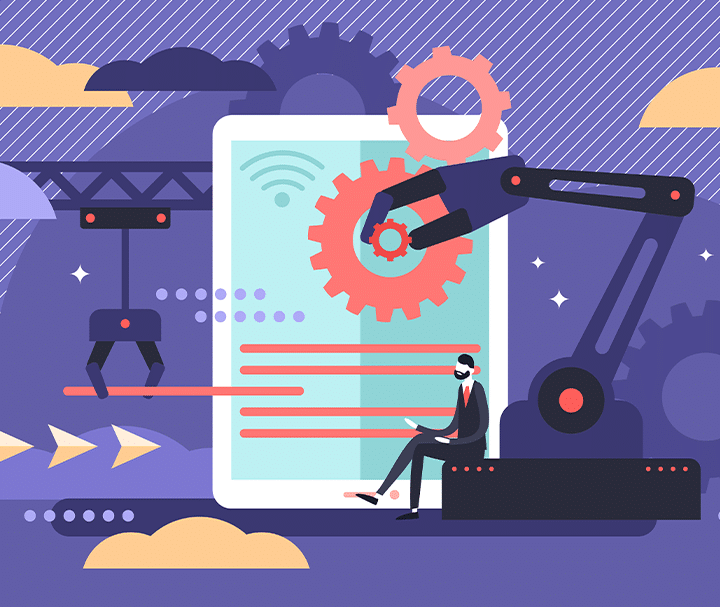Generative artificial intelligence (AI) has become a polarizing topic in recent months. The rapid evolution of ChatGPT and its capabilities have captured the world’s attention and have prompted questions about its impact on our lives, particularly our work lives. As with all new waves of technological advances, there are concerns: “Will AI replace my job?” “What are the ethical considerations?” “How do I even begin to learn about this stuff?”
As we saw in our article above, agencies are generally in favor of adopting AI in the workplace and some implementation has already started (or is on the horizon). While change can be challenging, it’s on the way, whether we’re ready or not. Now’s the time to start looking at the pros and cons of AI in the workplace and having discussions about how it could impact our work lives moving forward. Some of the top pros and cons are outlined below:
AI Pros in the Workplace
- Increased Efficiency: AI can automate many routine tasks, freeing up workers to focus on higher-level projects and increase productivity.
- Enhanced Decision-Making: AI can analyze data and offer insights that people may not be able to identify, leading to better decision-making and effective strategies.
- Cost Savings: By automating tasks, AI can reduce labor costs and improve the bottom line for organizations.
- Enhanced Customer Experience: AI-powered chatbots and other tools can provide fast, personalized service to clients, improving their overall experience.
AI Cons in the Workplace
- Job Displacement and Challenges in the Workforce: This is probably the biggest one. As AI automates routine tasks, there is a concern that certain job roles may become obsolete, leading to unemployment. The need to reskill employees to adapt to changes brought by AI poses a number of challenges for workers and organizations.
- Ethical Considerations: AI raises ethical concerns regarding data privacy, bias and transparency. Organizations must be proactive in addressing these concerns and establish ethical guidelines to prevent misuse or unintended consequences.
- Lack of Training and Poor Implementation: Implementing AI requires major investments in infrastructure, training and integration with existing systems. Cutting corners in areas like training as a way to save money results in misuse or not using AI to its fullest potential.
- Lack of Emotional Intelligence: While AI is great at data analysis and automation, it lacks the human touch needed for certain tasks. Industries relying heavily on human interaction may find it challenging to replace human expertise with AI systems.
- Accuracy: AI has developed at a rapid pace and it still has a way to go to offer up-to-date information. Tools such as ChatGPT base decisions on the past and it’s been argued that it can be behind with it comes to accurate facts and updates. It’s still important to do your own research to ensure the information is correct.
As agencies start to integrate generative AI into their operations, understanding opportunities and concerns becomes crucial for preparing to transition into this AI-driven era of government. Most of all, it calls for careful planning. Call us at 301-670-0051 or email us at leah@lmja.com for more information.

